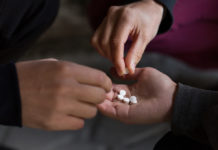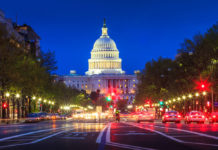Researchers at the National Institute on Alcohol Abuse and Alcoholism (NIAAA) are developing a new drug, which could reduce alcohol use in people with alcohol use disorder. What makes the drug, called ABT-436, different from other anti-addiction drugs is that it blocks vasopressin, a hormone vital in how we form attachments.
“We were looking at different aspects of addiction and one of the ones that we have looked at is more of what we call the negative affect,” said Principal Investigator Ray Litten, Ph.D., who is also acting director of the NIAAA Division of Medications Development. “People drink because they feel bad and may feel fatigued or a little bit depressed. It’s part of the withdrawal symptoms that continue. The stress system is also involved in this. So we looked at some of the targets that affect the stress system one of the targets we knew that was in there is vasopressin.”
First author and Clinical Project Manager Megan Ryan, and a team of researchers led by Litten enlisted 144 alcohol-dependent volunteers for the study. After four weeks of observation, patients were
randomly given a placebo or ABT-436 for 12 weeks.
At the conclusion of the trial, the drug proved most effective among participants with high levels of stress. Participants who scored high on the test — geared toward measuring anxiety and tension — reported 27 days of heavy drinking. Patients in the placebo group reported 46 days of heavy drinking.
Volunteers who admitted to smoking also found their need for cigarettes were diminished. ABT-436 was well-tolerated, and side effects have been mild to moderate diarrhea. Nonetheless, during the study, one person dropped out due to negative symptoms. The findings from the study were published in the international scientific journal Neuropsychopharmacology last September.
“This is really one of the first multi-site trials done that actually targets the stress system,” Litten said. “We knew from the animal models of drinking that when we use antagonists to this receptor reduced drinking and so we wanted to…(continue reading)
















